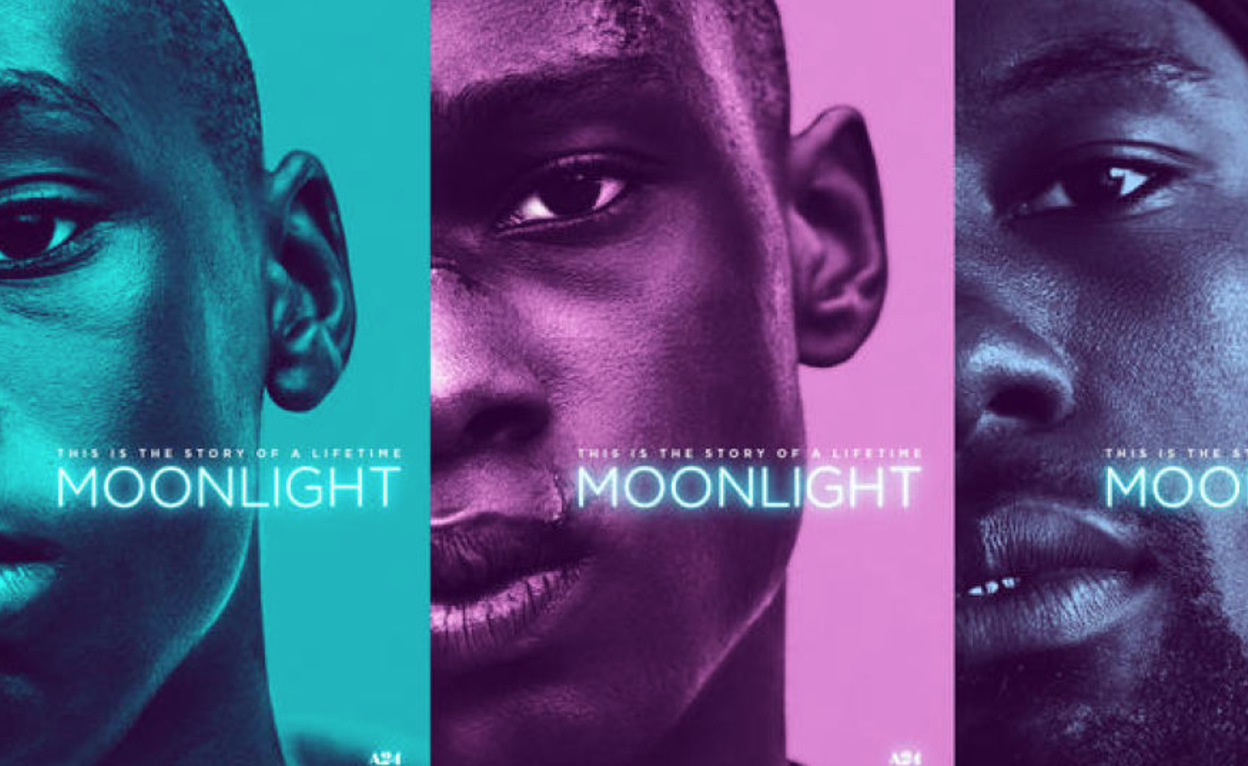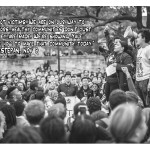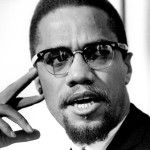by Nicole Chavez
On Thursday night, November 2, the Queer People of Color Coalition, along with the Yale Film Society, hosted a screening of the widely acclaimed new film Moonlight. Directed by Barry Jenkins and partially based on Tarell Alvin McCraney’s play In Moonlight Black Boys Look Blue, Moonlight tells the story of a young, queer Black boy living in the impoverished Liberty City neighborhood of 1980’s Miami.
In the opening scene of the film, the audience is introduced to the protagonist, 10-year old Chiron, clumsily running away from a group of bullies chasing him down, hurling shoes and rocks his way. Finding refuge in an abandoned, dilapidated apartment complex, we come to know Chiron, begrudgingly referred to as “Little”, as being in a constant state of guarded vulnerability. Unlike his peers, who wear a facade of exaggerated masculinity, Chiron appears demure. “What’s your name?” Even upon being found by Juan, an amiable Black Cuban who eventually becomes a father figure for the boy, it takes Chiron a whole day to answer his question and open up.
Throughout the rest of this first part of the film, titled “Little,” the audience learns more about the Chiron and how the intricacies of Black urban poverty have shaped him. Chiron’s mother, Paula, is a neglectful parent, more concerned with using drugs to escape the stressors of her life than she is with taking care of her son. She echoes the homophobic sentiment of Chiron’s bullies, calling her son a faggot before he even knows the meaning of the slur. Chiron is essentially deprived of support, stuck in a society that is already working against him for countless reasons.
Moonlight exhibits three time jumps titled “Little,” “Chiron,” and “Black,” which focus on Chiron’s childhood, adolescence, and early adulthood, respectively. The titles work dually as the names that Chiron goes by during each of time frame of his life, and give some indication of where he is in his understanding of the convergence of his Blackness and queerness.
In “Chiron,” we bear witness to the continuation of the bullying Chiron faced as a child. He’s bullied for his apparent femininity, which is assumed from his quiet nature. The violence escalates to the point at which Chiron is beat up at school by a group of boys, including Kevin, the first and only boy Chiron is intimate with. Here, the theme of the story becomes apparent: how does the toxicity of stereotypical conceptions of black masculinity cage black men, and how they can eventually be subverted? Arguably, “Chiron” depicts the protagonist in some of his most authentic moments. He is honest with himself and his reserved nature, and attempts to openly grapple with and express his sexuality. Unfortunately, Chiron faces societal backlash for his claim for authenticity, eventually finding himself in jail after attempting to assert himself in the face of his harassers.
The Chiron the audience is introduced to in “Black,” the final part of the film, stands in stark contrast to the protagonist presented at the onset. The tight-lipped twig-like boy in “Little” becomes “Black,” a buff, hyper-masculine drug dealer in Atlanta. Chiron uses his time in prison as an opportunity to “make [himself] hard” and build himself up to mirror the masculinity that led to his torment during his childhood and adolescence. Though seemingly stoic, a call from Kevin, Chiron’s friend and lover, tears at Chiron’s facade.
Driving all the way down from Atlanta to Miami, Chiron meets up with Kevin at the diner where he works. As they share food and drinks, Barbara Lewis’s voice is heard from the jukebox: “Hello stranger, it seems so good to see you back again.” Despite his drastic change in appearance, it becomes clear that Chiron has not become a stranger. In a society that has imposed upon him a monolithic narrative of black masculinity, he’s been forced to follow the script for his own self-preservation. Yet, upon Kevin asking him a simple but pointed question, “Who are you?”, Black reverts to Little, looking vulnerable and awkwardly closing into himself.
The inquiry calls up a moment from earlier in the movie when Chiron, an unknowing 10-year old, asking Juan what a faggot was. In his response to Kevin’s question in the closing of the film, Chiron seems to take Juan’s advice: “You gotta decide for yourself who you gonna be. You can’t let nobody make that decision for you.” Responding with action, Chiron and Kevin have sex.
Moonlight subverts the tropes of black masculinity in subtle and elegant ways. Whether it is through Juan, a masculine black drug dealer who becomes an accepting and compassionate father figure to a queer black boy, or Chiron, who is able to undo the effects of years of homophobia and toxic masculinity to renew his relationship with a former lover. The narrative of the film, one that easily could have focused on poverty and gang violence, skipped those moments in time jumps to focus on the story of a queer black man struggling with vulnerability and authenticity. The story of Chiron embracing his sexuality was not one of pure sex and physicality, but was portrayed through shots of caressing hands, heads resting in the crook of a lover’s neck, and eyes shuttered closed in safety.



